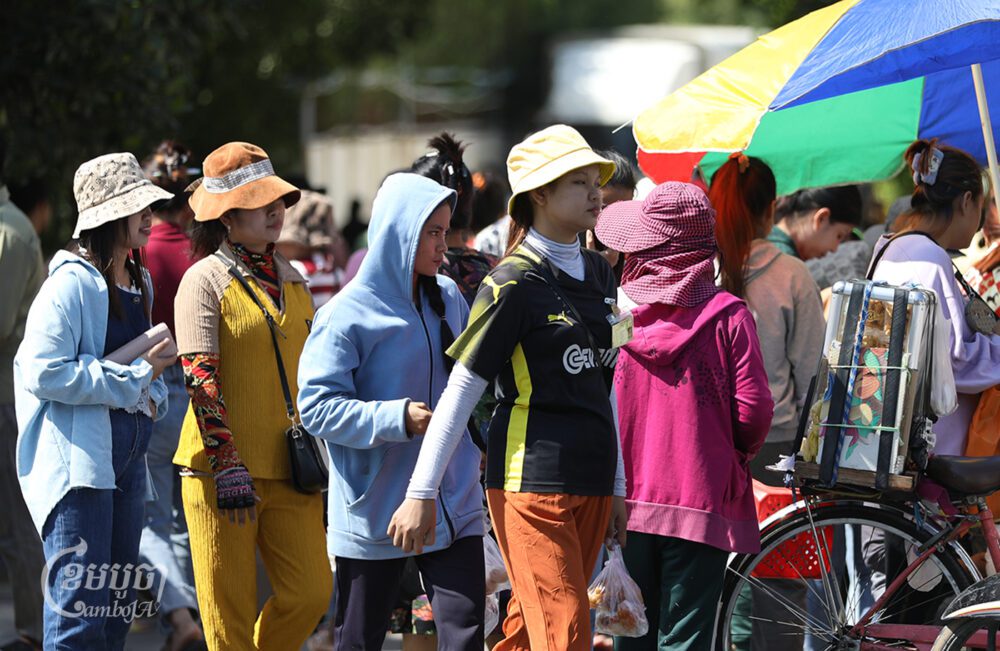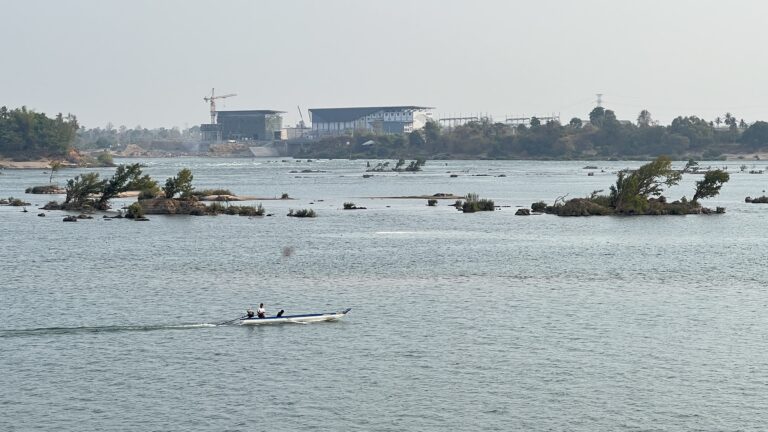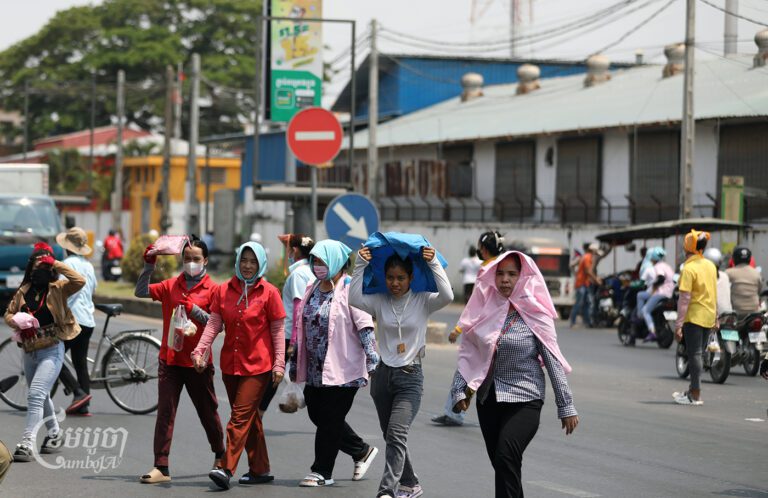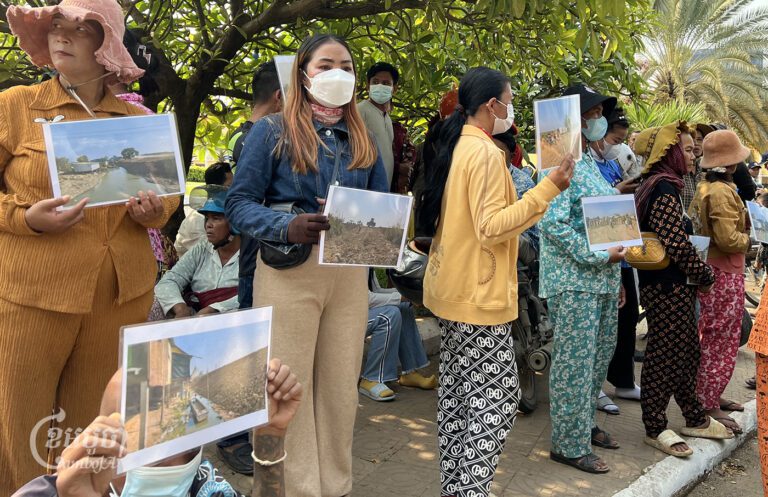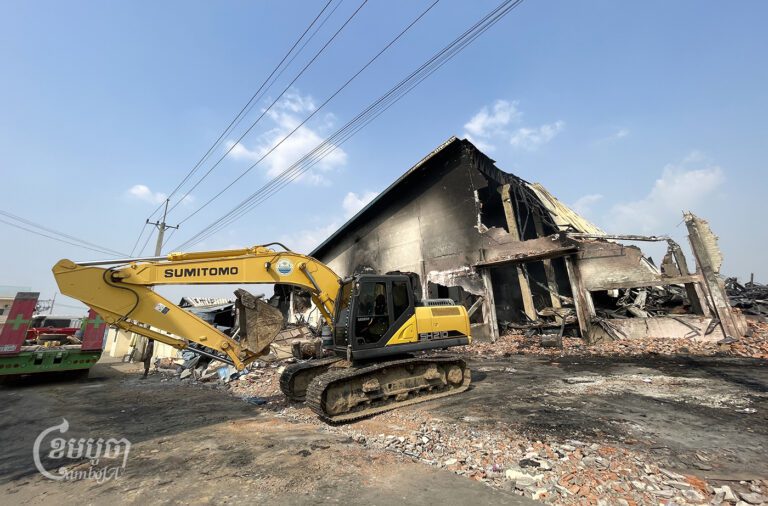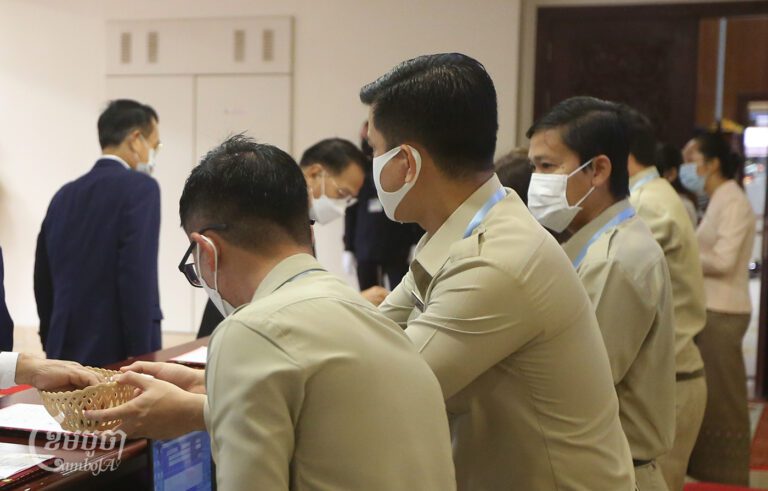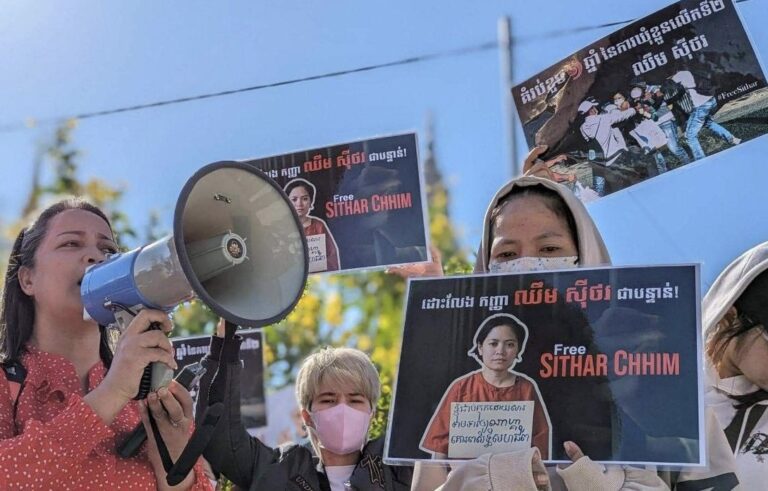Climate change is not a future concern for garment workers, but one that is already affecting their lives in the present, with over two-thirds of them presently suffering the effects of global warming, according to a report by NGO-CEDAW.
On December 27, 2023, the organization launched its 2022 monitoring report highlighting information from its NGO partners, while summarizing an investigative report on the impact of climate change on female workers.
The report found “critical links between climate and environment-related impacts and worsening labor conditions in Cambodia’s garment sector.”
Some 29% of workers experienced extreme weather or other disasters at their accommodations in the last 12 months, it said. Of that, the most commonly reported issues were flooding (63%) and extreme heat (42%).
Thy, an AYC factory worker who has been working since 2008 shared that his workplace does not have enough ventilation and is hot, especially during summer, which sees workers perspiring more and becoming exhausted.
“There was a worker who fainted in 2022,” he said. “Workers worked a lot and did not have enough food plus the hot weather caused workers to faint.”
When it is hot, workers drink a lot of water to stay hydrated, however, that makes them go to the toilet often, Thy related, adding that at times the leader of each sewing line chides the workers who do that.
“When they (workers) go to the toilet often, the leader of the sewing line scolds them with the bad words. There’s no respect for individual rights,” he added.
Another worker, Channet, who works at Hi-Tech Apparel Co Ltd in Poipet O’Neang Special Economic Zone, told CamboJA that the workers there are affected by climate change especially during the rainy season. She explained that the path leading to the factory from her rental room floods up to knee-level and sometimes the waist, which makes it difficult for workers to go to work. It can also affect their income because they cannot go to work regularly.
“Our workers face a lot of difficulties such as flooding, and the road is damaged, in which case motorcyclists are prone to accidents. We’re [also] worried about the safety of pregnant workers because the road is slippery,” Channet said, adding that the area flooded three years ago.
According to her, workers asked the factory management to repair parts of the road that were badly damaged by the floods, but nothing happened. The management said road repairs were not under their control. Following that, she asked the authorities to repair the damaged roads.
A CamboJA reporter contacted AYC and Hi-Tech using the phone numbers listed on the Commerce Ministry’s business registration website, but the persons who answered the call said they have “never worked with those factories”.
Meanwhile, Kata Orn, spokesperson of the Labour Ministry told CamboJA that the ministry has never received information about negative impacts of climate change on the health of workers.
“The ministry has assessed the working conditions of workers in the past and found that climate change has not affected their health,” he told CamboJA.
However, he acknowledged that heat waves during the summer can be terrible, thus advising factories to consider their employees’ workplace conditions and ensure there is sufficient ventilation, light and drinking water to safeguard their health.
But some factories have failed to follow this advice, Thy said, citing AYC, where there is inadequate equipment as he believes the company wants to “reduce electricity costs”.
“Now, there is no air conditioning and the fans are not enough. They don’t even fully open the water fans,” he lamented, adding that he has asked for a clean water system, particularly cold water and fans for the workers.
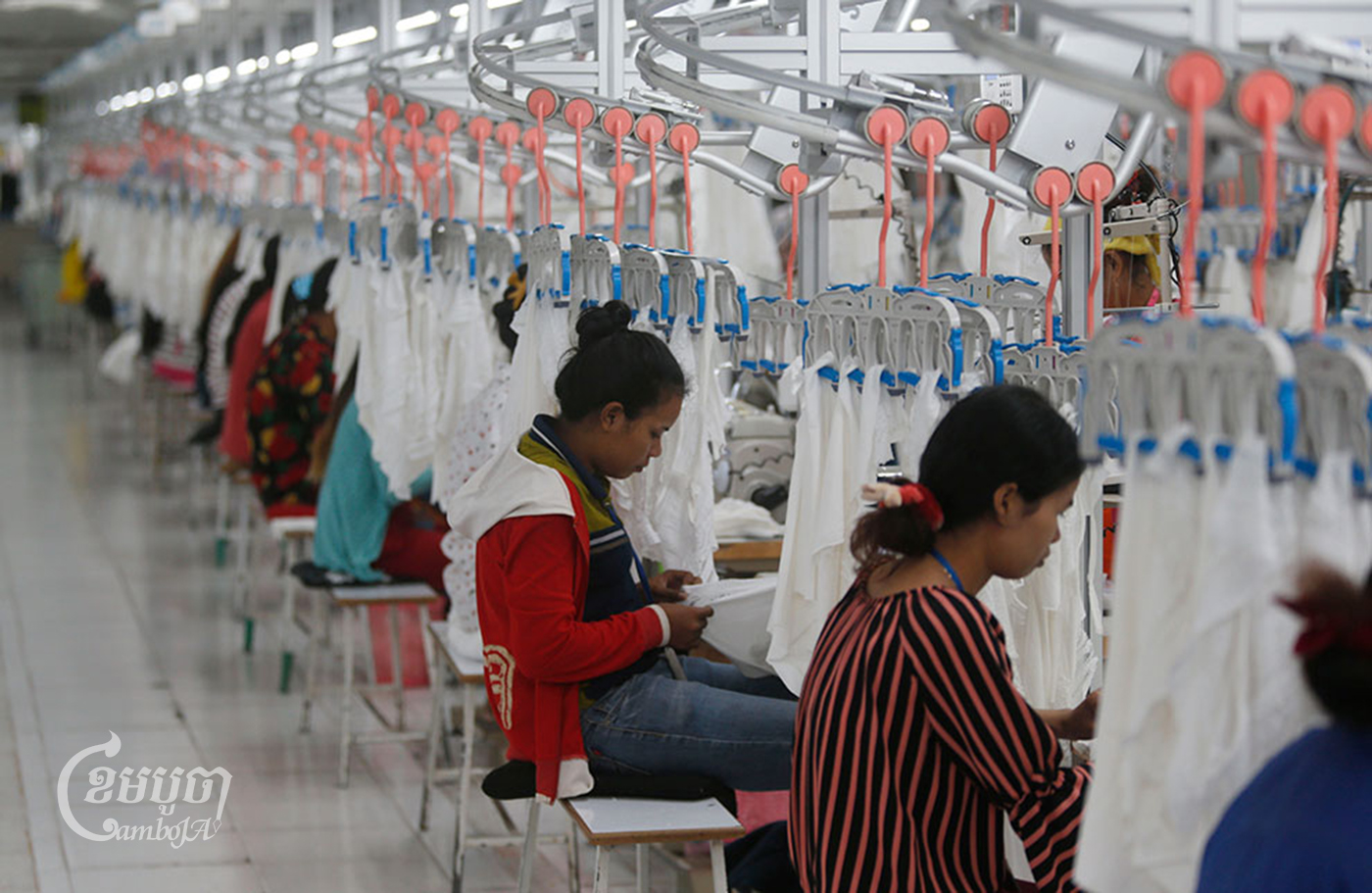
According to the Ministry of Water Resources and Meteorology, 2024’s dry season is expected to prolong until May. Warm temperatures with highs of 41 degrees Celcius may be felt from February to early May.
Louise Goldman, deputy country program director of Solidarity Center, told CamboJA that climate change could affect female workers in many ways. These range from negative health impacts of working in hot temperatures and flooded environments, to loss of income during extreme weather events.
“Many workers get their wages cut if they cannot get to work because of flooding for example, or if they cannot work due to extreme heat,” she said.
She added that climate change can also reduce access to affordable food and clean water due to affected crops and water systems, and in more severe situations result in the loss of housing and other infrastructure in extreme weather events.
Heat stress can cause a number of health problems, including heat stroke and cramps, heat exhaustion, dizziness, nausea, hospitalization and even death, especially during pregnancy and menopause. Men’s health is also impacted by heat stress, contributing to issues such as male infertility.
The health impacts can result in wage loss due to time off from work. Workers’ mental health can also be affected if they are unable to generate income because of extreme heat, Goldman said.
“[While] the issues have serious impacts on women workers’ physical health, it also causes serious social and economic impacts, rising household pressure in terms of loss of income and an increased amount of unpaid labor in the home – disproportionately undertaken by women. These can also lead to or exacerbate psychological stress and other mental health issues,” she added.
Goldman mentioned that the research in Cambodia and monitoring by the ILO Better Factories Cambodia have found that factory workers often work in unacceptable heat.
“It’s important these issues are examined in order to be understood and alleviated. Equipment such as workplace thermometers are needed to monitor temperatures along with adequate cooling systems that can cope during hotter periods,” she said.
As a result, she encourages workers and unions to be active in the drafting of climate change policies and rules.
Choup Paris, spokesperson of the Environment Ministry, did not respond to questions.
Ath Thorn, president of the Cambodian Labour Confederation, told CamboJA that climate change has a strong effect on factory workers. In 2019, around 1,200 workers fainted because of the heat as well as other reasons, like usage of chemicals in the factory.
“Outside, the temperature is about 35 to 36 degrees Celsius, but in the factory, it is nearly 40 degrees Celsius. The workers fainted as it was very hot and the environment [within the factory] was bad, cutting off oxygen,” he said.
He continued that in some factories they have adequate equipment while some do not. But, even factories with enough equipment, experience hot temperatures and cannot withstand the heat, forcing workers to work in uncomfortable conditions.
A report by Solidarity Center, which was cited by CEDAW, said despite Cambodian government’s target of pursuing resource efficiency and sustainability by implementing the principle of sustainable consumption and production, vital climate change-labor nexus is “largely absent” from the industrial policy and governance of Cambodia’s decarbonisation transition.
The report noted that the “government should improve social protection for marginalized groups who are often particularly vulnerable to climate change and may have little recourse to alternative livelihoods”.
“The government should involve workers and their unions in the development of national environmental and regulatory frameworks and the necessary monitoring and enforcement to encourage transformative investment in long-term environmental sustainability,” it added.


